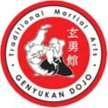Things to Know Before Joining Aikido Classes
Things to Know Before Joining Aikido Classes: A Comprehensive Guide

Aikido, a Japanese martial art founded by Morihei Ueshiba, focuses on harmonizing with the energy of an opponent to redirect and neutralize their attacks. Aikido practitioners cultivate a blend of physical techniques and spiritual principles to achieve balance, self-discipline, and personal growth. If you're considering joining Aikido classes, there are several essential aspects to understand before taking the plunge. This article will provide you with a detailed guide to what you should know before embarking on your Aikido journey.
Understanding Aikido's Philosophy
Before you join Aikido classes, it's crucial to familiarize yourself with the philosophy behind this martial art. Aikido emphasizes non-violence and non-aggression. Rather than defeating an opponent through force, Aikido practitioners seek to redirect the energy of the attack, neutralizing it without causing harm. The philosophy extends beyond the dojo and into daily life, promoting harmony and cooperation with others.
Finding the Right Dojo
Selecting the right Aikido dojo is pivotal for your journey. Research local dojos, read reviews, and visit multiple locations if possible. Observe the class environment, the teaching style of the instructors, and the general atmosphere. Finding a dojo that aligns with your values and goals will significantly enhance your learning experience.
Understanding the Training Expectations
Aikido training can be physically and mentally demanding. Before joining a class, be aware of the expected commitment in terms of attendance and training frequency. Consistency and regular practice are essential for progress and mastery. Additionally, inquire about any age or health restrictions that may apply, as Aikido can be adapted to suit various fitness levels.
Dress Code and Equipment
Aikido practitioners typically wear a traditional uniform known as a gi. Some dojos may provide gis for beginners, while others may expect you to purchase one. Additionally, you might need to invest in a hakama, a pleated skirt-like garment, once you advance to a higher rank. Understanding the dress code and equipment requirements will help you prepare adequately for your classes.
Embrace the Learning Process
Aikido is a journey that requires patience and dedication. You will encounter both challenges and breakthroughs along the way. Embrace the learning process and avoid getting discouraged by slow progress. Understand that improvement takes time and commitment.
Etiquette and Respect
Aikido places a strong emphasis on etiquette and respect toward instructors, fellow students, and the art itself. Before attending your first class, familiarize yourself with the basic dojo etiquette. Bowing, addressing instructors properly, and respecting the space are some common aspects. Embrace the customs, as they are fundamental to the Aikido tradition.
Safe Training Practices
Safety is paramount in Aikido training. While Aikido is designed to minimize injury, accidents can still happen. Pay attention to the instructions provided by your instructors and follow the safety guidelines. Communicate any health concerns or injuries to your instructors before the class starts, so they can provide appropriate modifications.
Cross-Training and Conditioning
Aikido involves dynamic movements, joint locks, and throws. To complement your Aikido practice, consider cross-training in activities that improve your flexibility, strength, and cardiovascular endurance. Yoga, Pilates, and strength training are excellent options to support your Aikido journey.
Importance of Learning Aikido
Learning Aikido is essential for various reasons, and its significance extends beyond just physical self-defense. Here are some of the key reasons why learning Aikido is important:
• Self-Defense: A primary reason for learning Aikido is to develop practical self-defense skills. Aikido techniques focus on redirecting and neutralizing an opponent's attack without causing harm, making it an effective martial art for defending oneself in real-life situations.
• Non-Violent Conflict Resolution: Aikido's philosophy revolves around non-violence and non-aggression. Instead of meeting force with force, Aikido practitioners learn to blend with and redirect an attacker's energy, promoting a peaceful resolution to conflicts.
• Personal Growth: Aikido is not just about physical techniques; it also emphasizes personal development and self-awareness. Through consistent training, practitioners cultivate qualities like patience, humility, discipline, and resilience, which can positively impact various aspects of life.
• Stress Reduction: Engaging in Aikido training can be an excellent way to manage stress and anxiety. The focus required during practice, combined with controlled breathing and physical movements, can help practitioners achieve a sense of calm and mental clarity.
• Improved Physical Fitness: Aikido is a physically demanding martial art that engages various muscle groups, enhances flexibility, and improves cardiovascular health. Regular practice can lead to increased strength, balance, coordination, and overall fitness.
• Increased Focus and Concentration: Aikido training demands concentration and awareness of the present moment. This focus on the immediate task at hand can carry over into daily life, leading to improved concentration and mental acuity.
• Conflict Resolution Skills: Aikido encourages practitioners to develop conflict resolution skills not only on the physical level but also in interpersonal relationships. The principles of harmony and cooperation learned in Aikido can be applied to navigate conflicts in various contexts.
• Building Resilience: Aikido practitioners often face challenges and setbacks during their training. Learning to persevere and overcome obstacles fosters resilience, which is a valuable trait applicable to both martial arts and life in general.
• Community and Social Interaction: Joining an Aikido dojo provides an opportunity to become part of a supportive community of like-minded individuals. The camaraderie and shared pursuit of mastery create a positive social environment.
• Cultural Appreciation: Aikido's origins are deeply rooted in Japanese culture and history. By learning Aikido, practitioners gain a deeper understanding and appreciation of Japanese traditions and philosophies.
In conclusion, learning Aikido offers a holistic approach to personal growth, self-defense, and interpersonal skills. Beyond physical techniques, Aikido fosters mental and emotional development, promoting a more balanced and harmonious life. Whether seeking self-defense capabilities or pursuing personal growth, Aikido provides valuable life lessons and benefits that extend far beyond the confines of the dojo.
Conclusion
Joining Aikido classes can be a life-changing experience, offering not only physical skills but also valuable life lessons in respect, discipline, and personal growth. By understanding Aikido's philosophy, finding the right dojo, and embracing the learning process, you'll be well-prepared to embark on this rewarding martial arts journey. Remember to prioritize safety, respect, and consistency, and you'll find yourself on a path of continuous self-improvement through the art of Aikido.
About the Creator
Genyukan Dojo
Martial Arts School in Rego Park
Website: https://www.genyukandojo.com/






Comments
Genyukan Dojo is not accepting comments at the moment
Want to show your support? Send them a one-off tip.